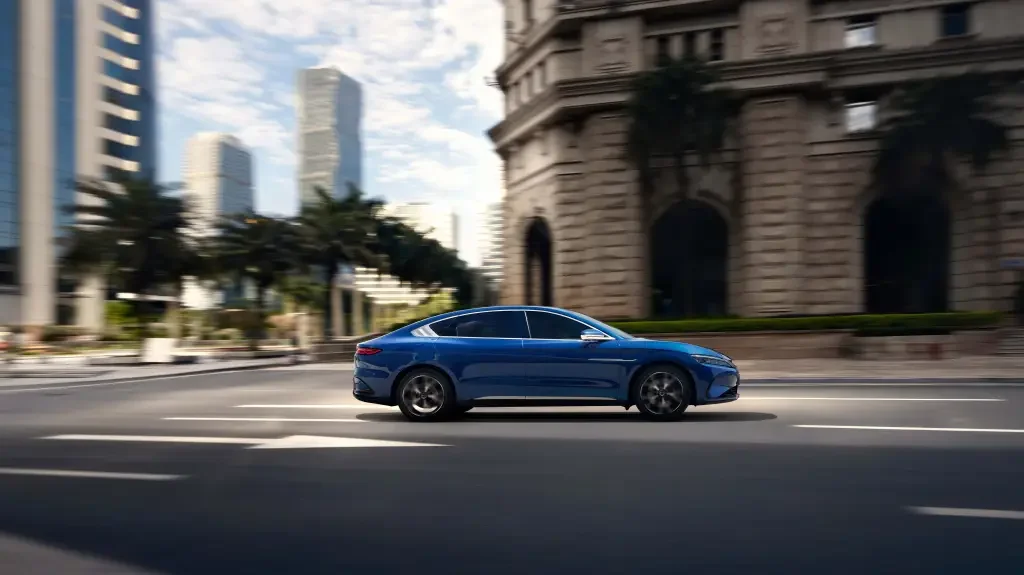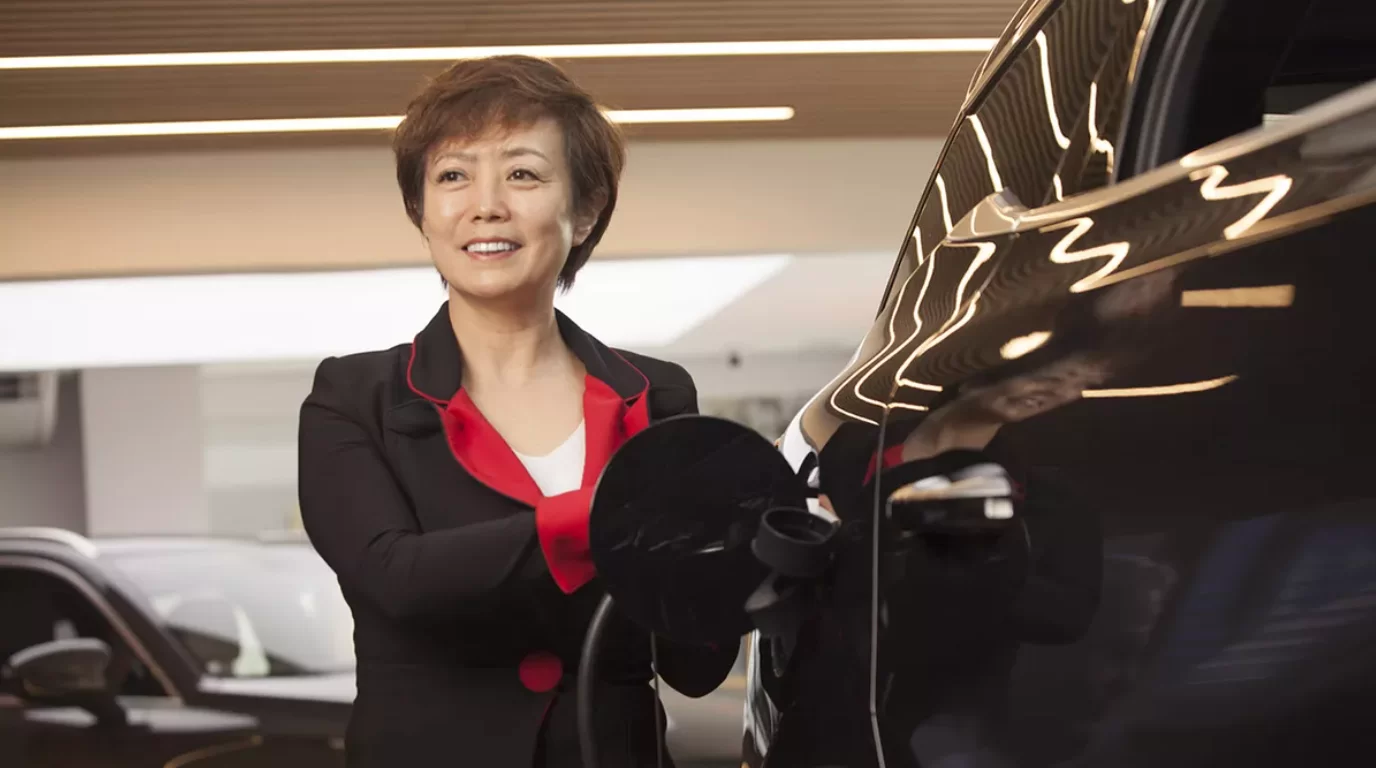Ivan Padilla*
Chinese Tesla may seem like a pretentious nickname, but it has its reason.
BYD was the brand that sold the most electric cars in the world in 2022.
There were 1.8 million units, half hybrid, half 100% electric, a 150% growth over the previous year.

With such superlative numbers, it is understandable that the expectation for the Brazilian operation is high.
The goal, not officially confirmed by the brand, is to produce 30,000 vehicles per year, including SUVs, pickups, and a mid-size model with hybrid and electric versions.
For this, it is estimated that the company will have to invest R$3 billion (US$600 million) to install factories in Brazil.
The most certain bet is the old Ford facility in Camaçari, Bahia, with no activity since January 2021.
Another possibility would be the construction of a plant in Bahia from scratch.
CHINA IS LEADING THE ROBOTICS INDUSTRY
Stella Li, president of BYD Americas and executive vice president of BYD Worldwide, talks below about the plans for Brazil.

BYD already has about 1000 cars sold and 22 dealerships in Brazil. What are the goals for this year and the next?
The goal is to make BYD a brand present in Brazilian daily life, the most important market in Latin America.
To make the pronunciation of these three letters something as commonplace as speaking of Apple, Amazon, or Mcdonald’s.
To present BYD not only as an automaker but as a reference of technology, innovation, care for the planet, and a future already present.
In parallel, we will expand our network to close the year with 100 stores and pave a path in search of leadership in the sector in the coming years, not only in electrified cars but in automobiles as a whole.
BYD foresees three launches per quarter. Which models are available, and which are coming?
We already have the models in our Dynasty lineup, the 7-seat Tan SUV and the Han sedan as our flagship models.
The Song Plus DM-i is our mid-size SUV, a hybrid car that has received excellent response.
The Yuan, also a mid-size SUV, is 100% electric.
The models from our Ocean line will arrive in the market in the next few months: the Dolphin, a modern and bold hatch; the Seal, a sports sedan with a bold design; and the Seagull, which in China costs the equivalent of R$57,000 and should also arrive here at a competitive price, with enormous potential to be the first electric car for many Brazilians.
The network should double in size and have a three-digit sales growth. How long will this take?
The idea is to reach these numbers in the next two or three years.
The installation of a factory in Brazil and the signaling from the President of the Republic, during a recent trip to China, to invest strongly in conditions that favor the electrified vehicle market – recharging infrastructure, tax incentives, fleet negotiation, having the generation of jobs as a counterpart – indicate to us that our goal is viable.
Do you believe that BYD will change the Brazilian automotive market?
We are certain of it. And excited about it.
Every time someone in Brazil thinks of a car with high technology, comfort, design, and that respects the planet, they’ll think of BYD.
And they will realize that it is a proposal beyond the vehicle itself.
It includes a complete solution for a clean energy supply, safe batteries, and a model considering urban mobility – with electric buses and monorails.
PRIDE OF CHINESE ORIGIN
The brand’s cars start at 300,000 Reais. Is Brazil a promising market for premium cars?
Brazil is a promising market in all ranges, but we want to establish ourselves as a premium brand.
The consumer needs to know that in a short time, they will find the BYD line models contemplate several sizes of personal budgets.
The best things we have to offer are in our premium vehicles, but the battery blade, design, and adaptive cruise control are all in the lineup.
How do you believe Brazilian consumers see Chinese cars?
We have no problem proudly assuming our history and Chinese origin, but it is important to point out that BYD is a global force and a technological innovation company, not simply an automaker.
A cut that only includes “Chinese car manufacturers” substantially diminishes the scope of what BYD offers to Brazilians and the rest of the world.
Who will be BYD’s public in Brazil?
The public which is passionate about technology and, ultimately, about the preservation of this planet, right?
BYD is a group with 70,000 engineers on its staff.
A company that became the largest manufacturer of face masks in one month in a moving response to the pandemic that ravaged the world.
We understand that this focus on innovation and technological development on many fronts will effectively improve the world of our children and grandchildren.
If you think like this, your next car will certainly be BYD.
If you use public transportation, you will ask the authorities for electric buses or take a non-polluting vehicle. You will bet on the sun, especially in Brazil, as an energy source. T
his is our public.
Will BYD have the same status in Brazil as brands that sell cars in this price range?
Again I must emphasize that we are not just an automobile brand but a tech company.
So we want to build our history in Brazil and establish our brand.
In this sense, I think BYD will have a different status than brands that sell cars.
THE FACTORY IN BRAZIL
BYD is called the Chinese Tesla. Does Brazil already have enough infrastructure to support investment by an automaker in electric cars?
We received firm signals from the Brazilian government that there will be investments in the infrastructure surrounding the electrified vehicles industry, be it in creating an extensive network of chargers in a continental country like Brazil or the reduction, even the exemption, of IPVA payments, etc.
The use of clean energy is an inevitable path with no turning back.
The question is not if but when we will be on a planet like this. And the answer is: soon.
HOW ARE THE PLANS TO ACQUIRE A PLANT IN BRAZIL PROGRESSING?
We are confident that a factory will soon be set up in Brazil, with operations starting 18 months after closing the deal.
It is the most important market in Latin America, and a production line that caters to Brazilians makes perfect sense.
It is not just the commercial appeal, however, that motivates us.
BYD believes it can make a difference in Brazil in a broader sense.
Generating jobs, offering sustainable consumption alternatives without giving up high technology, and helping to establish and consolidate the idea that the country with the Amazon, the Pantanal, and one of the most beautiful coastlines in the world thinks, acts, and lives to preserve all of this nature.
Another Chinese company, GWM, currently makes another large investment in an automaker in Brazil. How are these companies different?
I can speak for BYD, which, as I said, does not position itself simply as a car manufacturer, but as a global powerhouse of technological innovation.
Clean energy vehicles are one part of what we offer.
BYD has a mission to decrease the planet’s temperature by one degree. How?
We talked about this entire catalog of products, approaches, and professionals in this interview.
Electric cars, clean energy, sunshine, safe and high-performance batteries, the equivalent of an entire Maracanã stadium full of engineers, thinking today about what tomorrow will look like in ten years.
*Casual and Special Editor. Graduated in journalism at PUC and post-graduated in international relations at the Universitat Autonòoma de Barcelona. He was a special reporter for Época, executive editor of Época Negócios, chief editor of GQ Brasil, and editorial director of VIP.
With information from Exame

